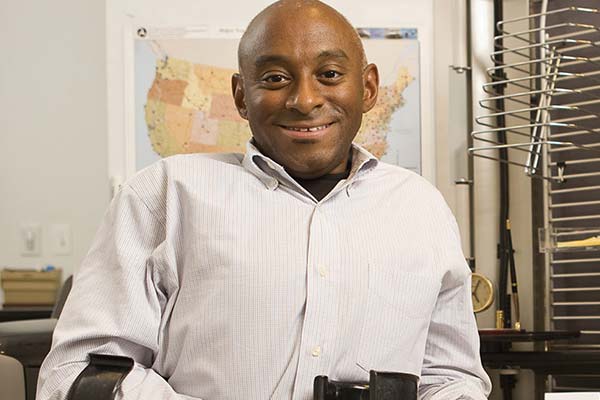
Employment is a huge part of our everyday life and how we define ourselves. This has become more of a focus for providers since the ADA passed in 1990 and ensured that systematic structures around employment were more accessible. This shifted the tide but there is still a ways to go.
For many with disabilities, including myself, the focus is on jobs instead of careers. Jobs give you experience. Experience is something that is crucially important to have – giving insight into different responsibilities, what you like and don’t like, job etiquette and what accommodations you may need. Of course, any job is important in providing a little extra money. This is important to note because people with disabilities still have a cap on how much they can make if they need assistance. The irony is that people often need additional income to help pay for services and support devices. Additionally, many people with disabilities live in poverty or near the poverty line so any extra income can be important.
So you may be asking, “What is the difference between a job and a career and does it really matter?” A job can be a stepping stone but a career is a pathway. For many people with disabilities, the goal is getting placed somewhere to work, which again, is a good thing. The problem is while some may be okay with that position for a long time, others may want to have ways to advance in their jobs and careers. As a society, as we started to think about jobs for people with disabilities, careers have not always been in reach.
This is sadly sometimes on par with how employment plans go for people with disabilities. These plans are really set up for the short term and not long term. With MyPlan, this might be changing but generally, the system seems more concerned with making sure someone gets a job and stays there, and not as concerned with long-term goals or movement.
An example from my own life was when I graduated college, I went to vocational rehab not knowing what I wanted in a career. Their recommendations were being a server or working at a retail store. Those are good jobs that you can definitely turn into careers but did not take my interests, needs or expertise into account.
Figuring out what I wanted in a career is something that, like many with and without disabilities, I had to find out on my own. For me and others with disabilities, the process can be a bit more difficult, for reasons related not only to our own impairments but also the systems around us. For me, the time I sought help from Voc Rehab was one of the first times I got support looking for careers or jobs. This may not seem like a huge deal but I generally had no idea what I was good at or liked enough to do. This makes it hard to think about a job let alone a career. So, I suggest people spend some time figuring out what you love to do, like doing, wouldn’t mind doing and what you would rather not do at all.
I figured out I really like to talk and write about things I feel are important. I also love to learn. I like having team meetings and consulting. I enjoy ideas and language. Some things I might not love to do but can do is database entry and envelope filing — so on and so forth. What I don’t want to do much of is work with my hands a lot as it is hard for me. That gives me a really good idea of skills or tasks I want to or don’t want to do with a job and leaves a lot of options open.
The next process for me was to consider not only what I wanted to do but the areas around a job that affect my decision. I had a few fields I thought I might like. I like ideas around sociology, psychology, anthropology, communication, ecology, philosophy. I know I am better with ideas than people even though I like to be around people. While I like to have enough work to keep busy and enough variety to be able to do numerous things, I do get stressed easy so do not want to be in an overly competitive field and need work-life balance. While I am looking to advance in my career, be promoted and have more opportunities, I am even more interested in stability and community.
This is in no way a complete guide when thinking about jobs and careers. Just a few recommendations and reminders. Think about what you are looking for, whether it is a career path or a certain type of job. It is okay to try a few things out and even change jobs or career paths. While employment is important for various reasons, don’t forget about friends, interests and opportunities you can have outside of your job. It is important to find a work-life balance that fits your needs. At the end of the day, it is your life and while it is important for us all to have support – whether informal or formal in the employment process – it is ultimately your choice.
Jason Harris is Director of Strategic Operations at LADD. He is also founder of Jason’s Connection, a non-profit and online community for individuals with disabilities, mental health, aging and diverse abilities and needs. As a neurodiverse individual on the autism spectrum, Jason knows firsthand the challenges faced by individuals in finding supports to assist them to live their lives in a way that meets their needs and goals. Jason has a master’s degree in Cultural Foundations of Education and a Certificate of Advanced Disability Studies from Syracuse University.
